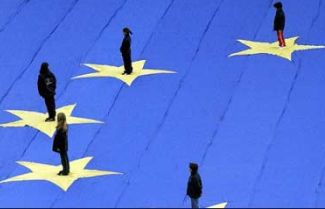EU – Baltic States, Forum, Latvia, Legislation, Society
International Internet Magazine. Baltic States news & analytics
Friday, 26.04.2024, 09:05
Invitation to EU Commission’s projects for 2015-20
 Print version
Print version |
|---|
Main aims of the program are the following:
- To contribute to citizens' understanding of the EU, its history and diversity;
- To foster European citizenship and to improve conditions for civic and democratic participation at EU level;
- To raise awareness of remembrance, common history and values;
- To encourage democratic participation of citizens at EU level, by developing citizens' understanding of the EU policy making-process and, by promoting opportunities for societal and intercultural engagement and volunteering at EU level.
Priorities of the program for 2015
There are two main annual priorities of the program for 2015:
1. European remembrance
In the context of the 70th anniversary of the end of World War II, priority will be given to projects that focus on:
- World War II and the associated rise of intolerance that enabled crimes against humanity;
- The consequences of World War II for the post-war architecture of Europe: its division and the Cold war on the one hand, and the beginning of the European integration process following the Schuman Declaration in 1950 on the other hand.
2. Democratic engagement and civic participation
In the current debate on the European Union in times of the economic crisis and following the European elections of May 2014, there is a need to deepen further the discussion on the future of Europe on what kind of Europe citizens want, also stimulating new forms of civic participation whilst reinforcing those existing. This debate should be based on lessons learned from history and consider in particular the concrete achievements of the European Union. Such debate should not be limited to citizens already supporting the idea of the European Union, but reach out to citizens who have not been involved so far, or who reject the Union outright or put in question its achievements. The project is dealing with “debating on the future of Europe” ideas.
For further information, see the EU Citizenship portal at:
http://ec.europa.eu/citizenship/news-events/news/09122014_wp2015_en.htm
Contact point in Latvia:
Europe for Citizens Contact Point Latvia; Ministry of Culture of the Republic of Latvia;
K. Valdemara street 11a, LV-1364 Riga.
Contact person: Laura Turlaja, [email protected] , [email protected]
Web: www.km.gov.lv
Calendar of events
Projects from Latvia in EU program „Europe for Citizens":
- Building Active European citizenship: strengthening participation in NGO's work;
- Promoting vulnerable consumers knowledge and information of Energy Efficiency;
- European rural area before and after Fall of Berlin Wall;
- To remember not to happen again; and
- Structural support for Centre for Public Policy PROVIDUS.
General website:
Education, Audiovisual and Culture Executive Agency
http://eacea.ec.europa.eu/citizenship/index_en.php
For projects:
https://eacea.ec.europa.eu/sites/eacea-site/files/documents/comm2013003670000en.pdf








 «The Baltic Course» Is Sold and Stays in Business!
«The Baltic Course» Is Sold and Stays in Business!

